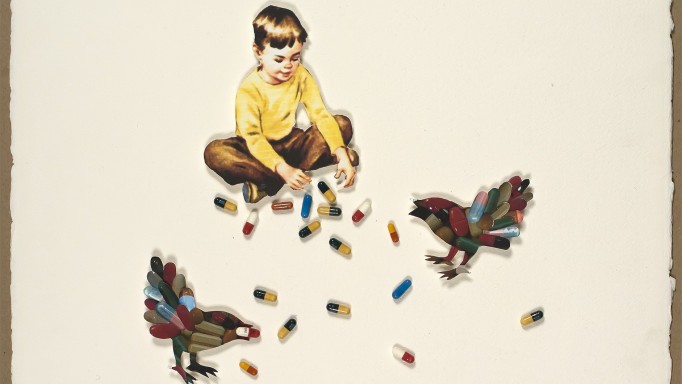Antiretroviral drugs not only help people living with HIV maintain good health and reduce transmission, but they also enable HIV-negative people to avoid the virus. Pre-exposure prophylaxis—better known as PrEP—refers to pills or injections taken regularly to prevent HIV.
PrEP Options
There are currently three antiretroviral options approved by the Food and Drug Administration (FDA) for HIV prevention:
- Truvada (tenofovir disoproxil fumarate/emtricitabine, or TDF/FTC)
- Descovy (tenofovir alafenamide/emtricitabine, or TAF/FTC)
- Apretude (long-acting cabotegravir)
Click here for the POZ HIV Prevention Drug Chart for more information about each of the available options.
Truvada (also available as generic TDF/FTC) was approved for HIV prevention in 2012. It is approved for all populations at increased risk for HIV. It is usually taken once daily, but studies show that taking it “on demand” before and after sex—known as PrEP 2-1-1—also works well. Studies of cisgender gay and bisexual men and transgender women, including the pivotal iPrEX trial, have shown that daily Truvada is around 99% effective for preventing HIV if used consistently as directed. Truvada PrEP is also effective for cisgender women, but they may need to maintain better adherence for optimal protection.
Truvada is generally safe and well tolerated, though it can cause minor side effects such nausea, which usually resolve after the first few weeks or months. The TDF component can cause kidney problems and bone loss in susceptible individuals, and it is not recommended for people with preexisting kidney impairment. The drugs in Truvada are also active against hepatitis B virus (HBV), and liver flare-ups can occur if people with HIV/HBV coinfection stop taking it.
Descovy (not yet available as generic TAF/FTC) was approved for PrEP in 2019. It is approved for cisgender men and transgender women. However, due to a lack of evidence, it is not yet indicated for people exposed to HIV via vaginal sex, such as cisgender women and trans men. Descovy should be taken once daily, not on demand before and after sex. The DISCOVER trial showed that daily Descovy PrEP is as effective as daily Truvada for cisgender men and trans women. Studies of cisgender women are currently underway.
Descovy is generally safe and well tolerated, though it, too, can cause minor side effects. Compared with the TDF in Truvada, TAF is easier on the kidneys and bones, but it has been linked to elevated blood fat levels and possible weight gain. The drugs in Descovy are also active against HBV. (Click here to learn more about the differences between TDF and TAF.)
Apretude was approved for HIV prevention in 2021. It is approved for all populations at increased risk for HIV. It is given as an injection, usually in the butt, administered by a health provider for two consecutive months and then every other month. The HPTN 083 trial showed that Apretude is even more effective than daily Truvada for cisgender men who have sex with men and transgender women. The HPTN 084 trial found that Apretude was substantially more effective for cisgender women in Africa, largely thanks to better adherence.
Apretude is generally safe and well tolerated, with no major adverse effects. The most common side effect is mild to moderate pain, redness or swelling at the injection site, which usually goes away after a few days. Of note, HIV diagnosis may be delayed in the rare cases when infection occurs despite using Apretude.
How to Use PrEP
PrEP is indicated for people who are at increased risk for HIV. In addition to PrEP, they should be offered risk-reduction counseling, adherence counseling and condoms.
According to the Centers for Disease Control and Prevention (CDC), this includes people who have had anal or vaginal sex within the past six months and who have sex partners who are HIV positive or whose status is unknown, do not consistently use condoms or have recently been diagnosed with a sexually transmitted infection (STI). PrEP is also indicated for people who share needles or other equipment to inject drugs, but there has been little research on its effectiveness for this group.
The CDC now says that providers should inform all sexually active adults and adolescents about PrEP and prescribe it to anyone who asks for it, as this may “help patients overcome embarrassment or stigma that could prevent them from telling their health care provider about their HIV risk factors.”
PrEP is indicated only for people who are currently HIV negative. It is important to get tested before starting PrEP and every three to four months thereafter. Before starting, it’s best to use a sensitive test that can detect acute, or very early infection. Although the drugs used for PrEP can prevent HIV infection, they are not powerful enough to treat HIV, so people who acquire the virus despite using PrEP will need additional antiretrovirals to avoid drug resistance and maintain viral suppression.
Other tests are recommended before starting and while taking PrEP. Kidney function should be checked at the outset and monitored periodically. Descovy or Apretude may be better options than Truvada for people with preexisting kidney problems. People starting Descovy should have their cholesterol and triglyceride levels checked. It is also important to test for hepatitis B virus (HBV) before starting Truvada or Descovy. These drugs are active against HBV as well as HIV, and liver flare-ups can occur a person with HIV/HBV coinfection stops taking them. Finally, as many people on PrEP do not always use condoms, they should be tested regularly for STIs—the CDC recommends every three to six months—and treated, if necessary.
Click here to see the CDC’s PrEP guidelines.
Access to PrEP
A decade after the FDA’s approval of Truvada for HIV prevention, PrEP has yet to reach its full potential. According to the CDC, of the 1.2 million people in the United States who could benefit, less than a third were prescribed PrEP in 2021.
While many urban white gay men have eagerly adopted PrEP, uptake has been slower for other groups. This is true for Black and Latino men who have sex with men, women of all races and ethnicities, adolescents and young adults and people living in rural areas. While Black people account for about 40% of new HIV cases in the United States, only 8% of those who could benefit received a PrEP prescription. For women and Latino people, the proportions with a PrEP prescription were and 10% and 14%, respectively.
Truvada, Descovy and Apretude are expensive, with a price tag of approximately $1,800 per month, but most people can get PrEP for free or at reduced cost. Generic versions of TDF/FTC are now available at a monthly cost of around $30 to $60.
The U.S. Preventive Services Task Force (USPSTF) now recommends all three PrEP options for people at increased risk for HIV. The expanded recommendation has an A grade, meaning it is well supported by scientific evidence. The Affordable Care Act requires private insurers to fully cover prevention services with an A or B grade. Medicare and state Medicaid programs also cover PrEP, but their requirements and coverage of associated services can vary.
In addition, some cities and states have PrEP assistance programs, and Gilead Sciences (which makes Truvada and Descovy) and ViiV Healthcare (which makes Apretude) offer financial assistance. Many AIDS service organizations have navigators or financial counselors who can help you access PrEP.
Last Reviewed: October 9, 2023














